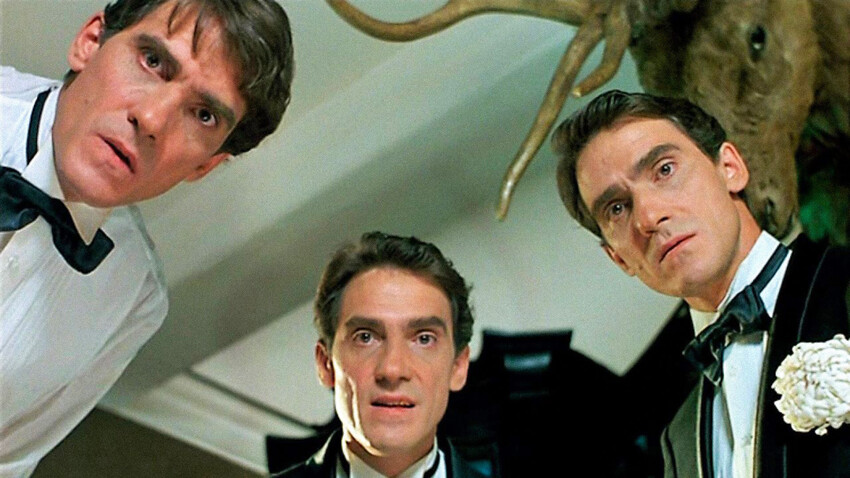
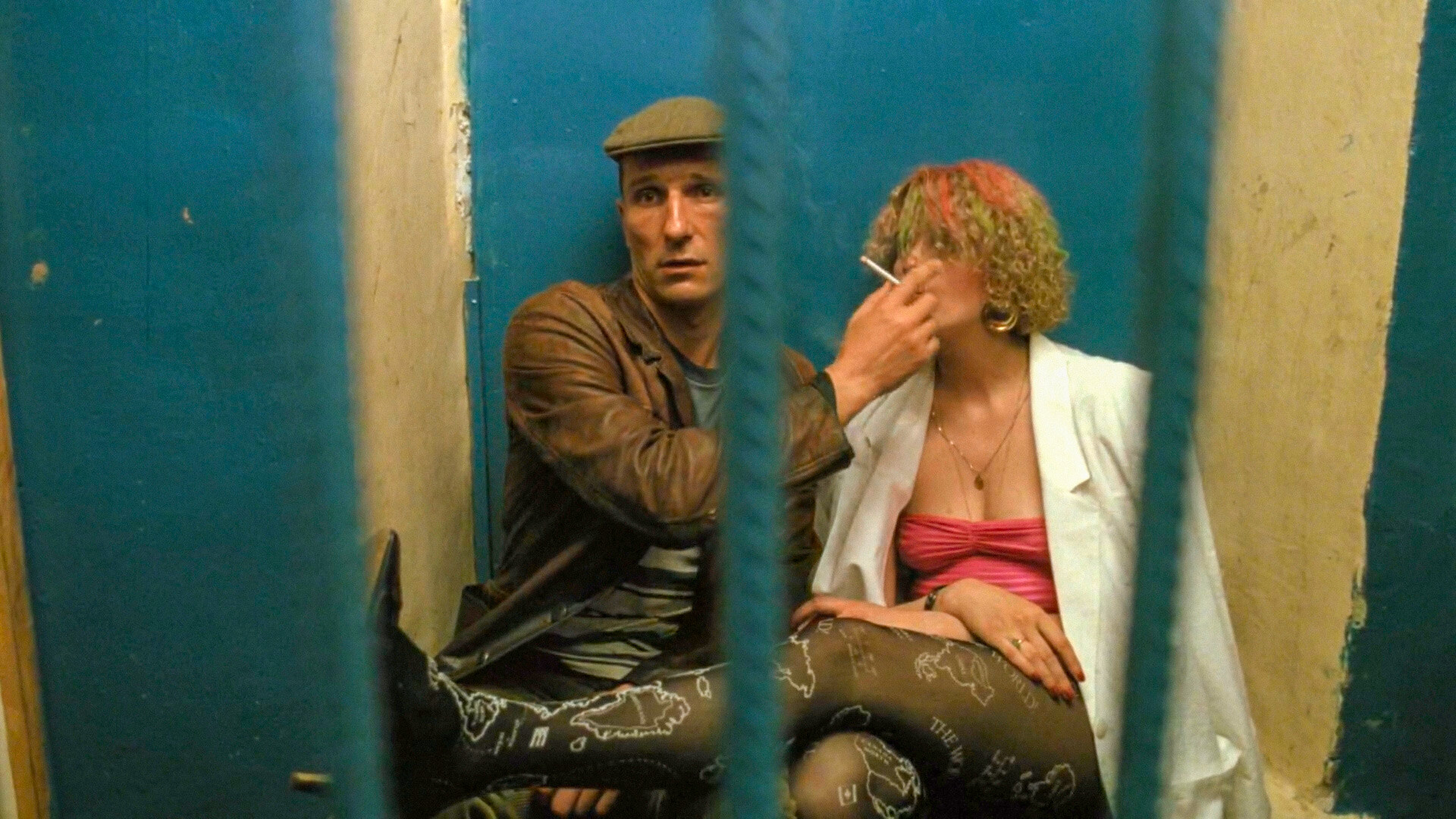
A strict Soviet man named Ivan Shlykov, who works as a taxi driver, meets Alexey Selivestrov, a hapless blues sax player, during one of his rides. Having reached their destination, the musician deceives Ivan and runs away without paying. The taxi driver goes after him, but realizes that Alexey has nothing but his sax; he decides to give him shelter at his home instead. Like this, the friendship of two very different people begins and nobody suspects where it might lead them.
The theme of the transitional state of Russia runs through the movie – when the Soviet Union stood on the cusp of its collapse [the USSR collapsed officially a year later, but the process was already ongoing] and no one understood how to live on. This is a movie about an “old school” man and a liberal who’s waiting for change – no doubt, symbolic of what the country was at that time.
Watch the movie here
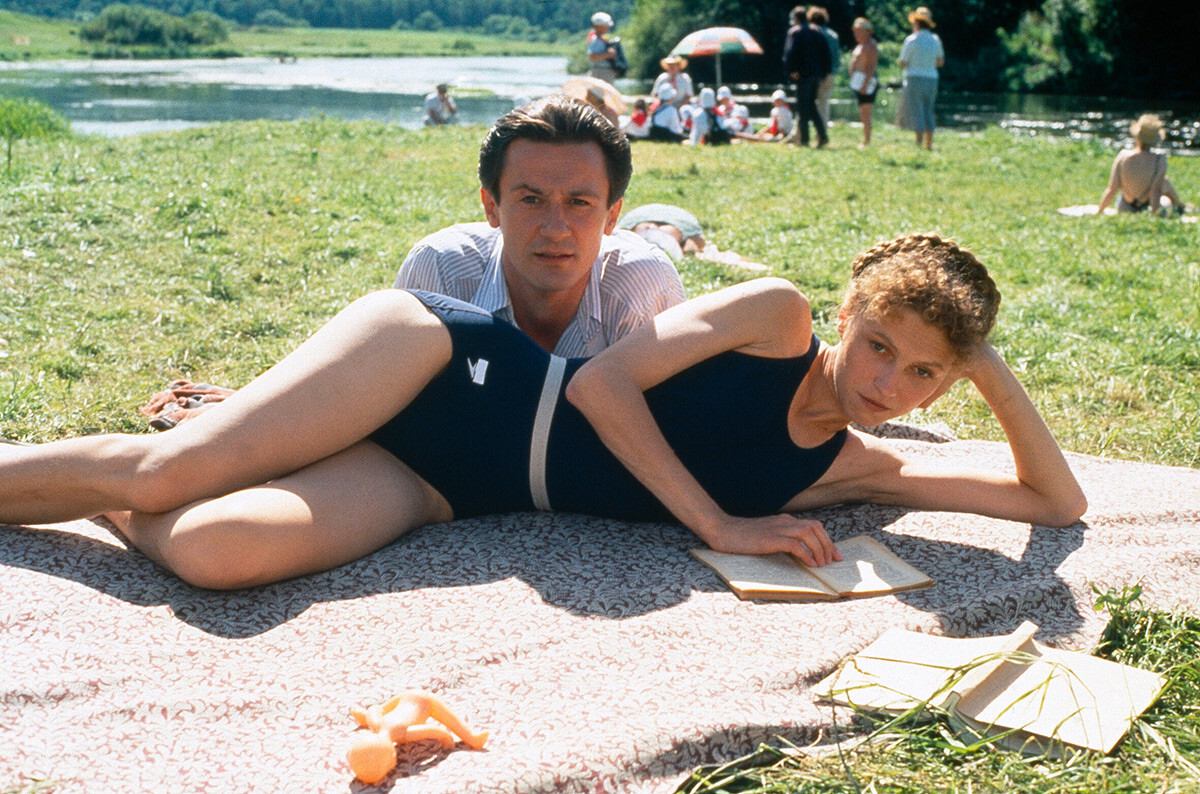
The family of divisional commander Sergei Kotov relaxes at a dacha in the Summer of 1936 – right before the peak of mass repressions. They manage to keep their pre-Revolution way of life and they dream for it to go on forever. However, their idyllic lifestyle collapses when an uninvited guest shows up at their doorstep…
Director Nikita Mikhalkov managed to show, through the example of one intelligentsia family, how Stalin’s repressions destroyed people’s lives. In 1995, this movie about the Soviet totalitarian machine received an Oscar for ‘Best Foreign Language Film’ and won many other international awards.
Watch the movie here
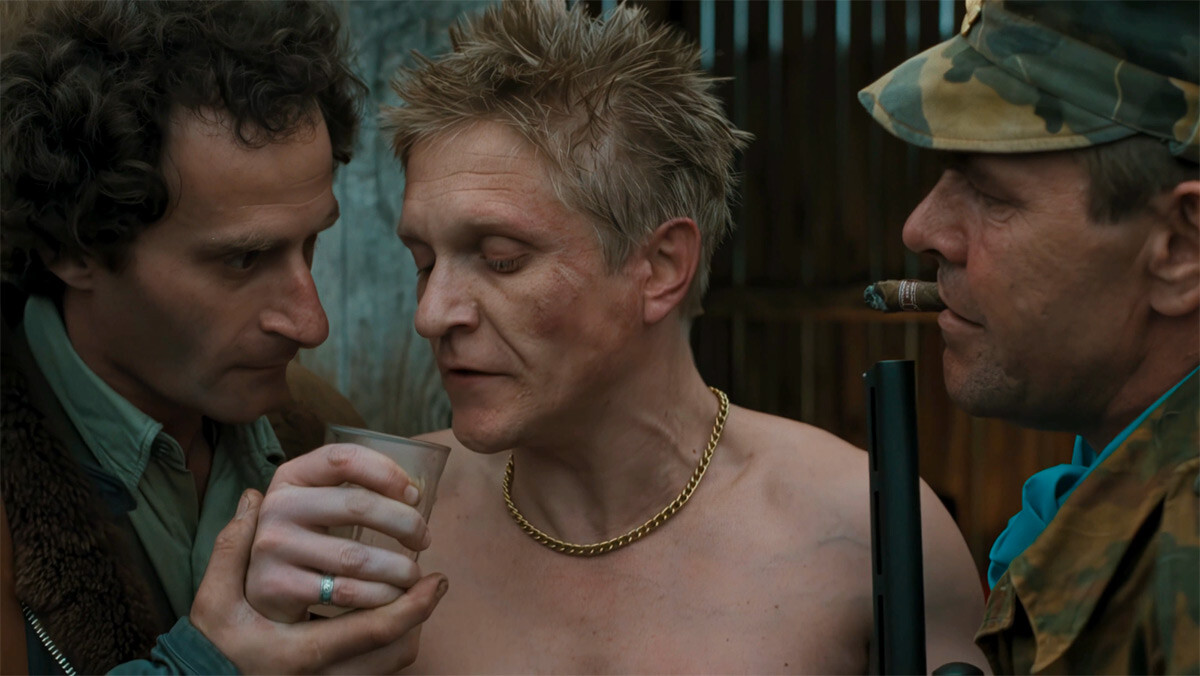
The main hero – a Finnish man called Raivo – is studying Russian customs and traditions to write a book about them after. He persuades his friend Zhenya to help him participate in a proper Russian hunt. They assemble a company of Russian hunters and head to the forests. However, the more time passes, the more Raivo realizes that the process of the hunt itself for a Russian is not the main thing at all. Soon, everything that happens around loses all possible sense and meaning.
The movie plays with the stereotypes about the addictions of Russians – alcohol, banya, bears and so on. However, behind the unpleasant situations, there’s a deep allusion of Russian society. Many critics talk about this movie as a “portrait of the national soul”.
Watch the movie here
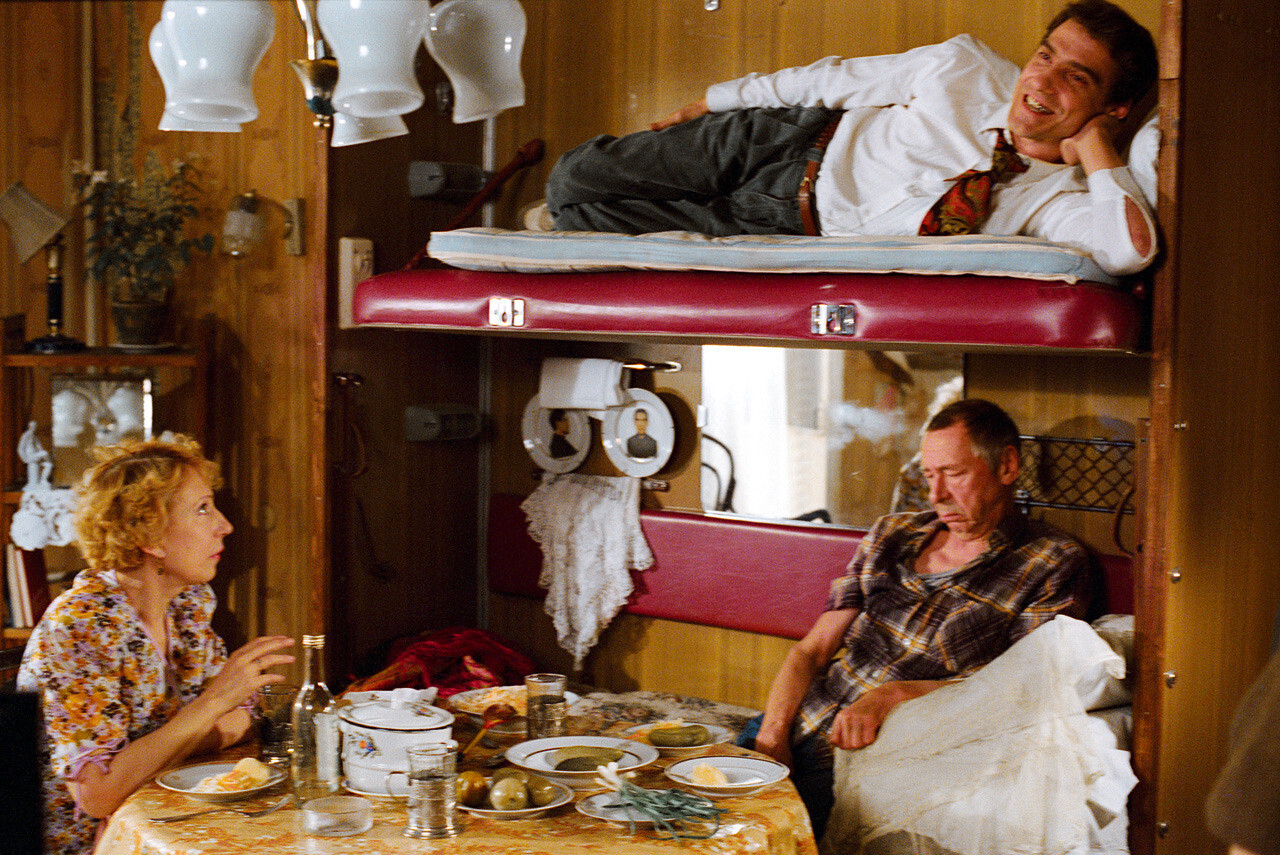
A giant diamond has been found in Yakutia. So giant that it would not only cover the country’s foreign debt, but also provide a three-year holiday on the Canary Islands for every citizen of Russia. Naturally, anyone would crave to acquire such a thing. So, professional thief Vasily Krolikov steals it and everyone around – from the government to the mafia – sets out to catch him.
As is the case with many movies from the 1990s, this one also paints a portrait of the era: a power crisis, a law enforcement crisis and a crisis of tastes and worldviews. Vitaly Moskalenko, the movie’s script writer, described the philosophy of the movie in this way: “Capitalism is fun, it’s fun when you survive!”
Watch the movie here
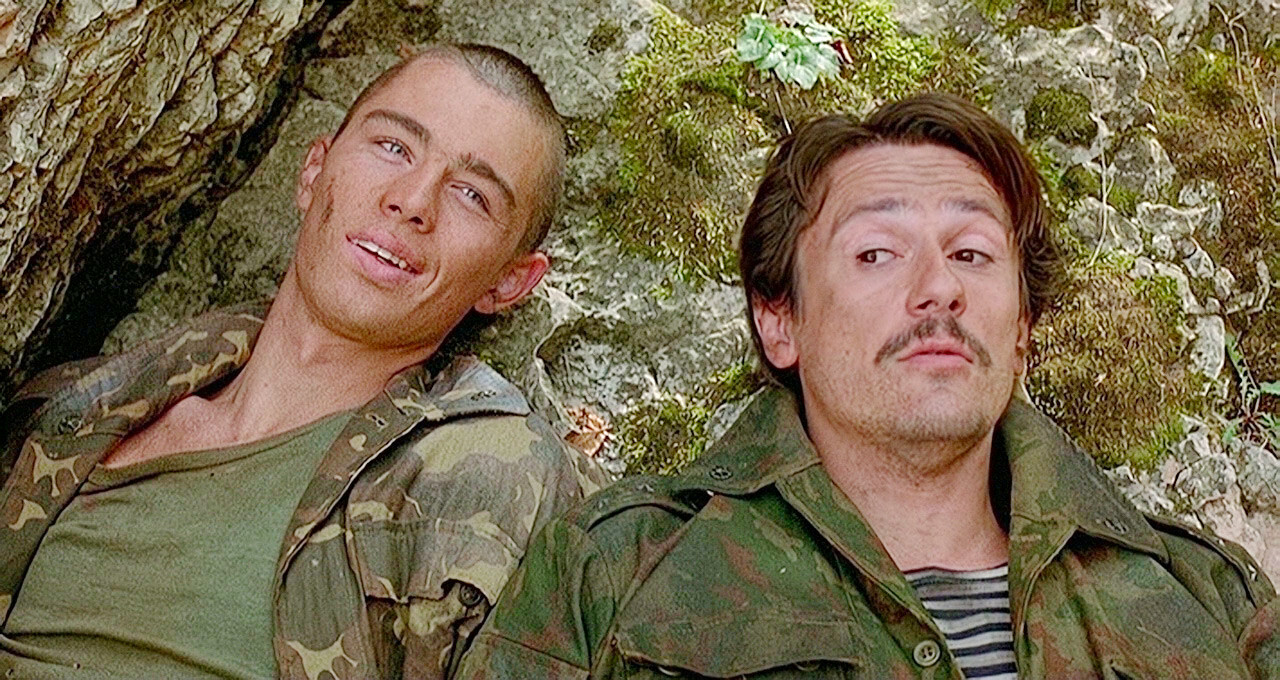
During the Caucasian War in the 19th century, Sergeant Sasha and Private Zhilin are taken prisoner by Abdul-Murat, a man from a remote Chechen village. Locked up together, they grow closer to each other. A hope for salvation appears when Abdul-Murat offers their freedom in exchange for his own son, kept prisoner by the Russians.
This movie about the struggle to survive in the conditions of a national conflict is a big screen adaptation of a short story by Leo Tolstoy of the same name. In 1997, the movie was nominated for an Oscar for ‘Best Foreign Language Film’.
Watch the movie here
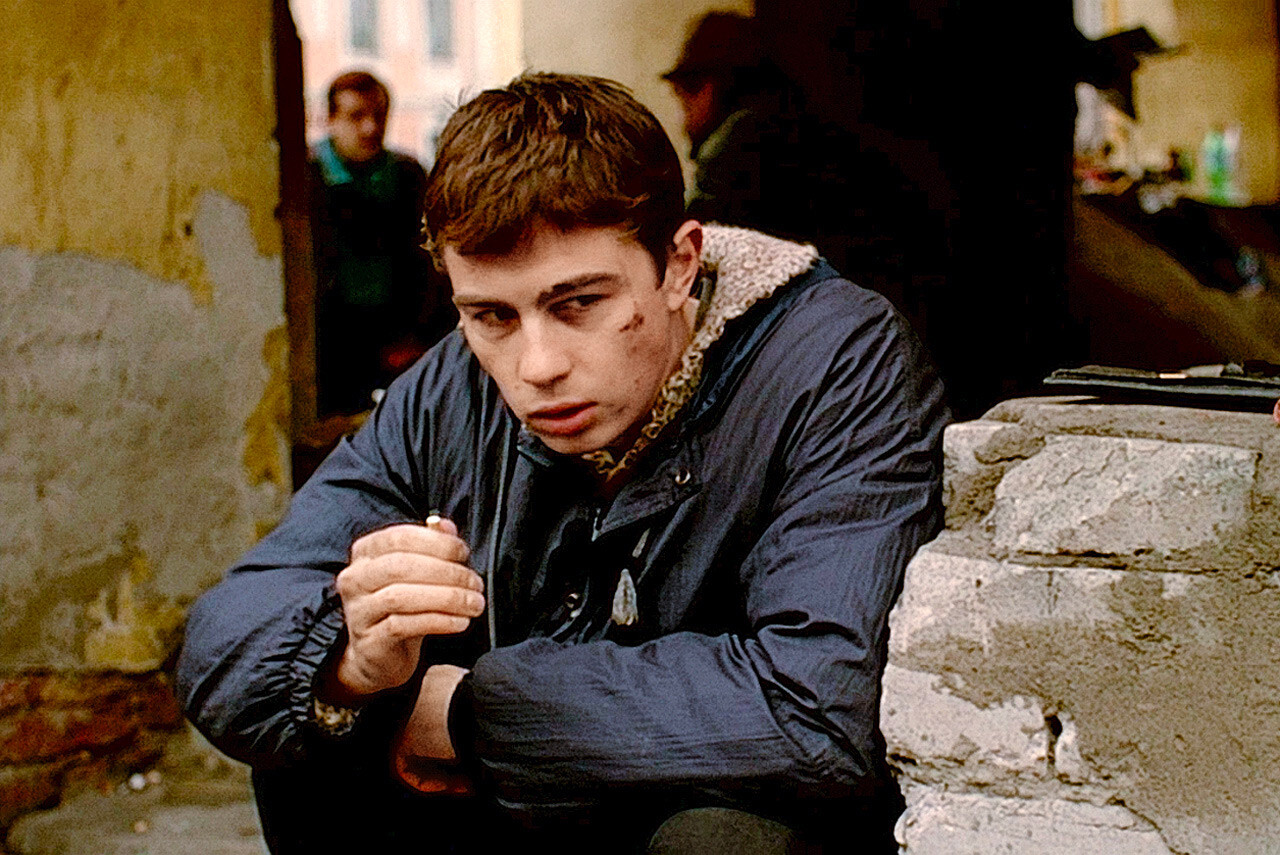
Danila Bagrov returns from the Chechen War and gets into a fight during the filming of a rock music video. He’s taken to the police; they threaten to put his name in their register if he won’t find a job. The mother of Danila scolds her son and, to prevent such things from happening in the future, sends him to St. Petersburg to his older brother Viktor for “re-education”. However, Danila finds out that his brother himself has become a criminal authority – and he follows in his footsteps.
Alexey Balabanov’s movie about a man who can’t fit himself into society after returning from war and reaches once more for a weapon had a tremendous impact on Russian-language culture. This is an iconic movie about how war affects those who come back from it.
Watch the movie here
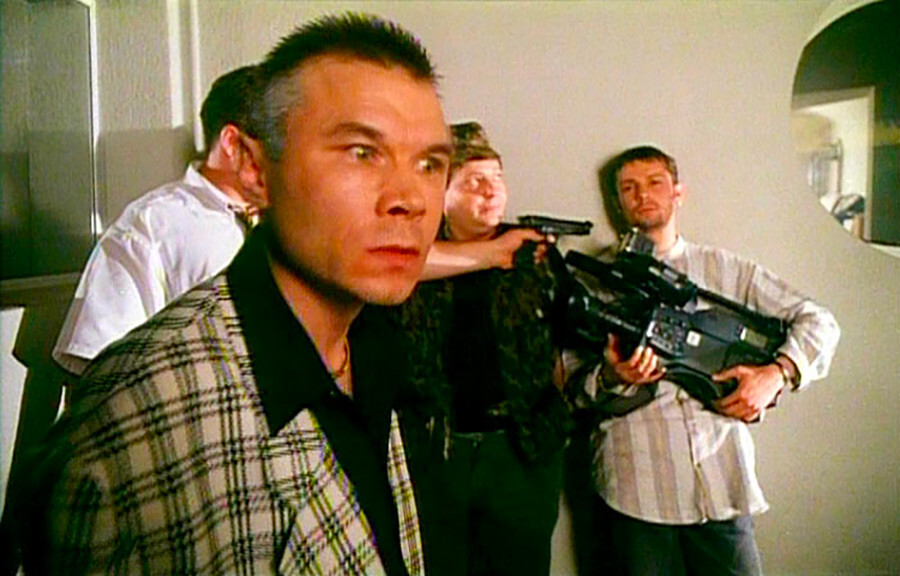
There’s a wedding being celebrated in a provincial seaside town. However, the celebration is spoiled by a crime boss nicknamed ‘The Tourist’. He chases the bride and gets beaten by the groom. The police, along with the bandits, decide to punish the groom, but the latter flees. Now everyone is hunting him – the police, the bandits and the relatives.
This comedy movie became a satirical depiction of the era of criminal romance for the 1990s audience, where mafia members with weapons freely walked the streets and drug addiction ceased being something fictional from foreign movies. ‘Mama Don’t Cry’ skillfully crushes all Soviet myths, which required more time to emerge than for their final collapse.
Watch the movie here
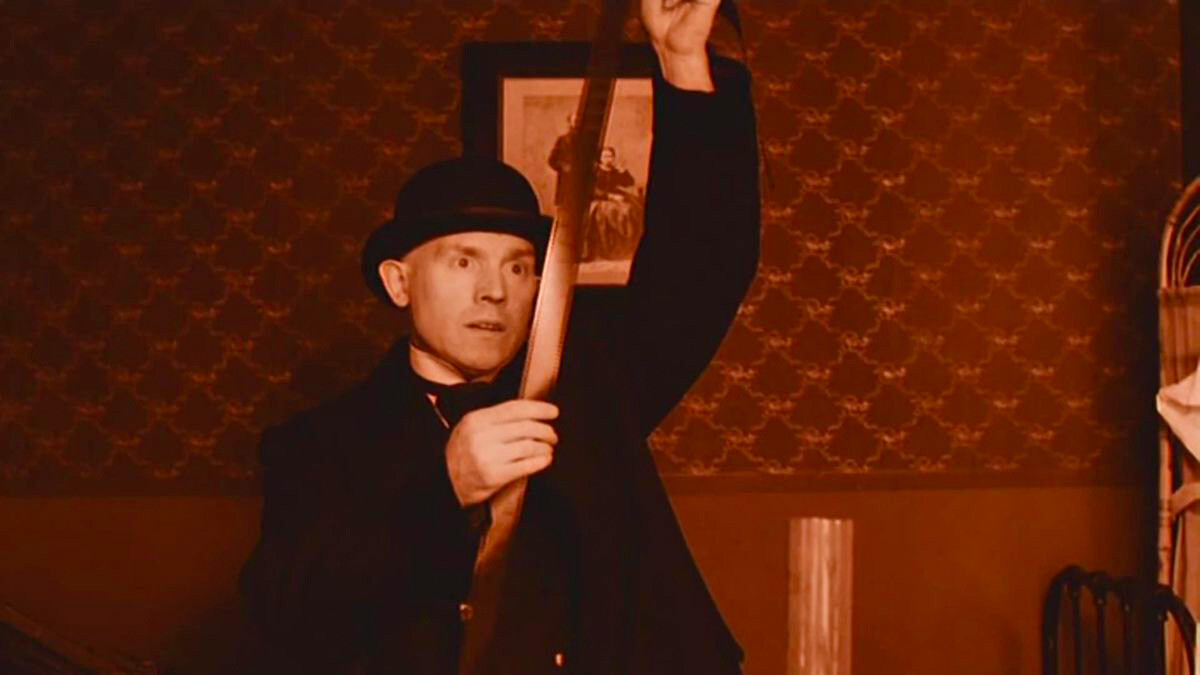
Johann, the owner of a photo studio, takes regular portraits; however, no one knows that he secretly also takes erotic photos with sadomasochistic narratives. Unable to hold back his creative urges, he slowly destroys two whole families, corrupting them and turning them into the victims of his depraved hobby.
According to director Alexey Balabanov, this movie was supposed to be released even earlier, but, due to the provocative nature of its plot, it was incredibly hard to find funds to realize his idea.
Watch the movie here
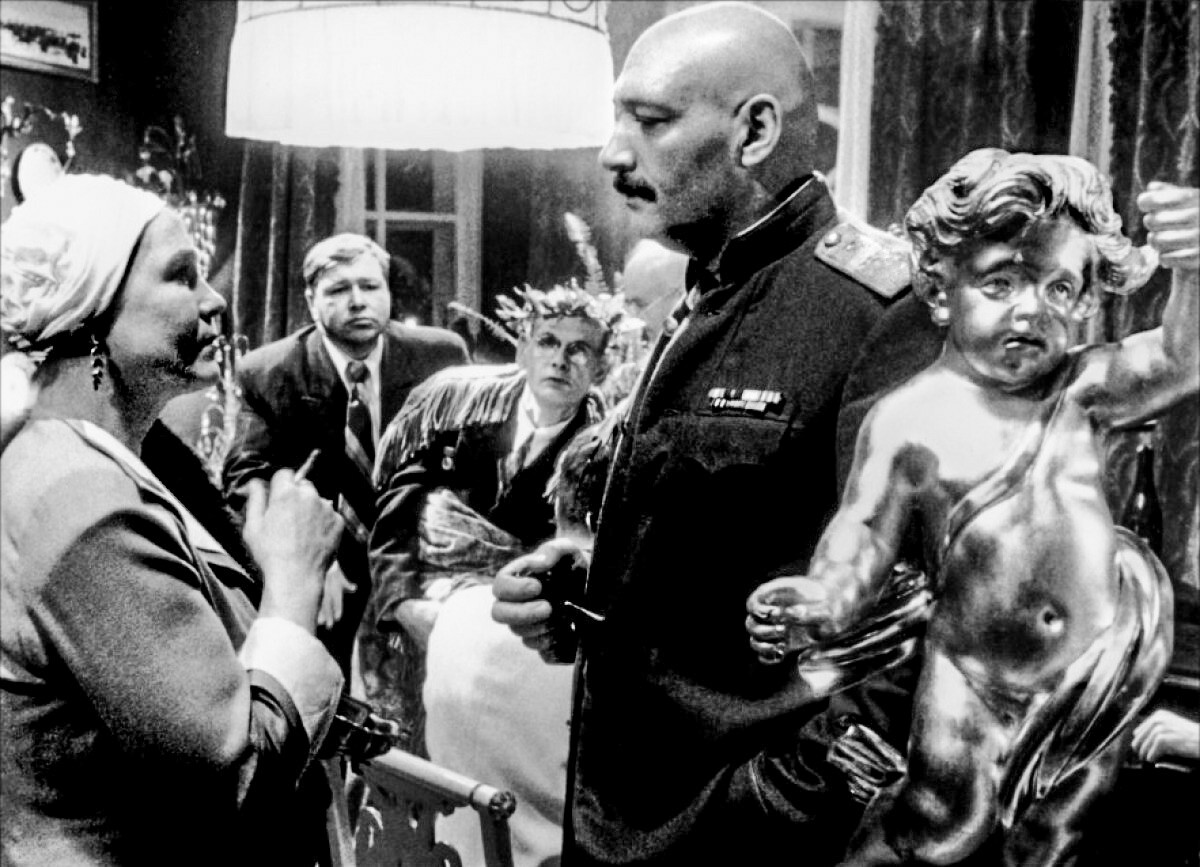
The plot of the movie develops around a military-medical service general named Yuri Klensky during the times of the ‘doctors’ plot’ affair (the charges of conspiracy and of murder of famous Soviet leaders, fabricated by Soviet authorities). He feels the danger and starts drinking a lot of cognac. He ends up in a hospital, where he meets face-to-face with his own double. Yuri knows that such dead ringers are used by state security services in set-up court trials, so he realizes that he will become the next target in the ‘doctor’s plot’.
Director Alexey German claimed that his movie strove to track down the source of Russia’s problems and answer the question of why Russians are so unhappy. At the Cannes Film Festival, where the movie premiered, the critics didn’t receive it well. However, later they apologized for their harsh criticism, recognizing the movie as one of the great movies of the decade.
Watch the movie here
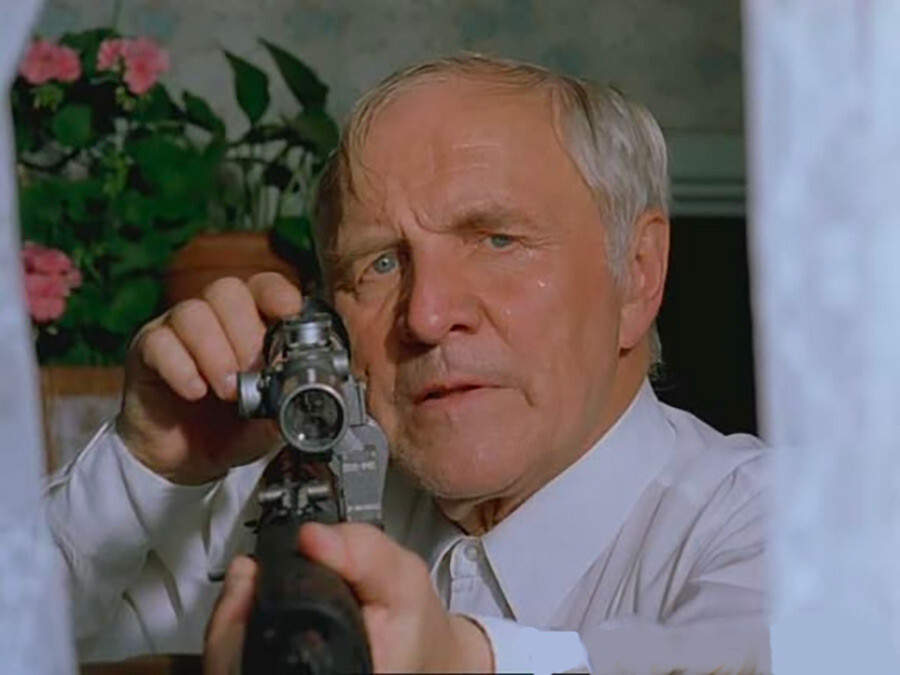
A regular music college student named Katya becomes a victim of gang rape. The son of a police colonel was among the perpetrators and his father helps to hush the case up. Unwilling to leave the rapists unpunished, Katya’s grandfather, Ivan Afonin, a World War II veteran, decides to punish the perpetrators himself and begins his manhunt.
Despite its vast popularity, the movie fell under harsh criticism for romanticizing revenge and vigilantism; the term ‘voroshilov sharpshooter’ later became a household name. Vigilantes were called that. For example, in 2007, in the city of Bryansk, a pensioner was convicted for shooting dead the people who beat him up. Later, he admitted that this movie by Stanislav Govorukhin inspired him to do so.
Watch the movie here
If using any of Russia Beyond's content, partly or in full, always provide an active hyperlink to the original material.
Subscribe
to our newsletter!
Get the week's best stories straight to your inbox